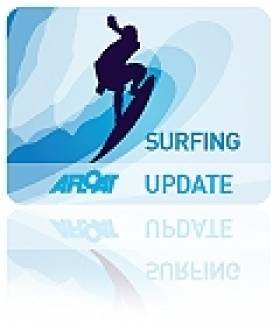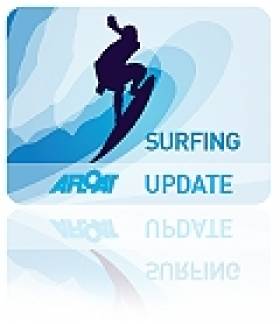Displaying items by tag: Dave Owens
Irish 'Happy to Be a Part' of First SUP and Paddleboard Worlds
#SURFING - Team Australia proved that when it comes to watersports, they're a step above most of the competition at the inaugural ISA World Stand-Up Paddle (SUP) and Paddleboard Championships in Lima, Peru recently.
The paddleboarding duo of Brad Gaul and Jordan Mercer each won three gold medals, along with the team gold medal and the perpetual Club Waikiki Trophy, which will be awarded to the overall team champion every year.
But for every powerhouse team like Australia, the USA and South Africa, there were teams like Ireland who arrived at the world championships to represent themselves well, but also to be able to say they were there for the beginning of something big.
"The event was just amazing, such a positive vibe amongst all the competitors, everybody that we met from local organizers to everyone at our hotel or the drivers," said Finn Mullen, who competed along with teammates Dave Owens, Paul Byrne, Ed O'Farrell, Keith Gorman and Jane Downes.
"They were all so stoked to have the contest and see us all here," Mullen added "and there was like this amazingly friendly vibe in the water, because really they were being super gracious to us, giving us the break for the entire week, and they couldn't be more accommodating and I couldn't me more happy that I was able to be a part of it."
Irish Six in Peru for SUP and Paddleboard Worlds
#SURFING - A six-strong Irish team is in Peru to compete in the inaugural World Stand-Up Paddle and Paddleboarding Championships, which commence today (19 February).
The surfers have travelled at their own expense to the Peruvian capital Lima to take part in the International Surfing Association-sanctioned event, where they will contest against paddleboarders from 19 other countries.
“It is the first of its kind and we wouldn’t want to miss out," team member Paul Byrne told TheScore.ie. "The fact that it has been recognised enough to hold an international competition means stand-up padding (SUP) is here to stay.”
Dubliner Byrne first got involved in SUP in Australia, and found on his return to Ireland that he and his friends didn't need to seek out the popular surf out west to keep up with the sport - the swell produced by ferries in Dublin Port is just what they needed (see video of Dave Owens above).
Byrne joins Owens, Finn Mullen, Ed O'Farrell, Keith Gorman and Jane Downes in South America for the World Championships, which run till 25 February.
“We been competing in Europe," he says, "but it is sure to be tough against surfers who are sponsored to do it for a living.”

























































